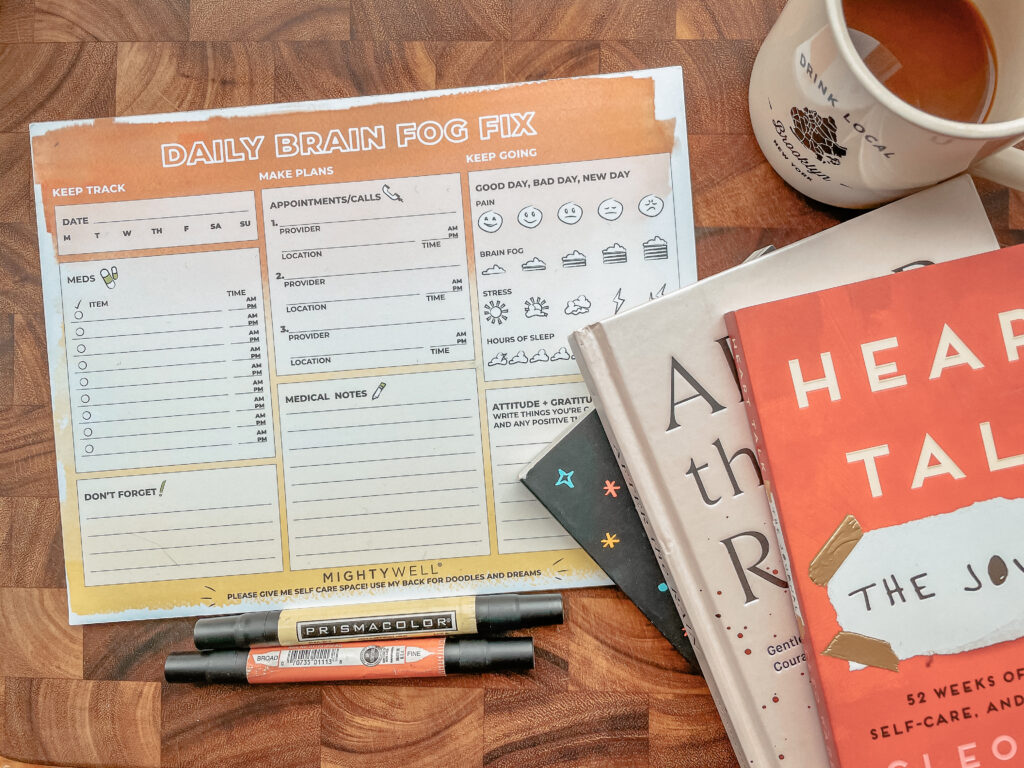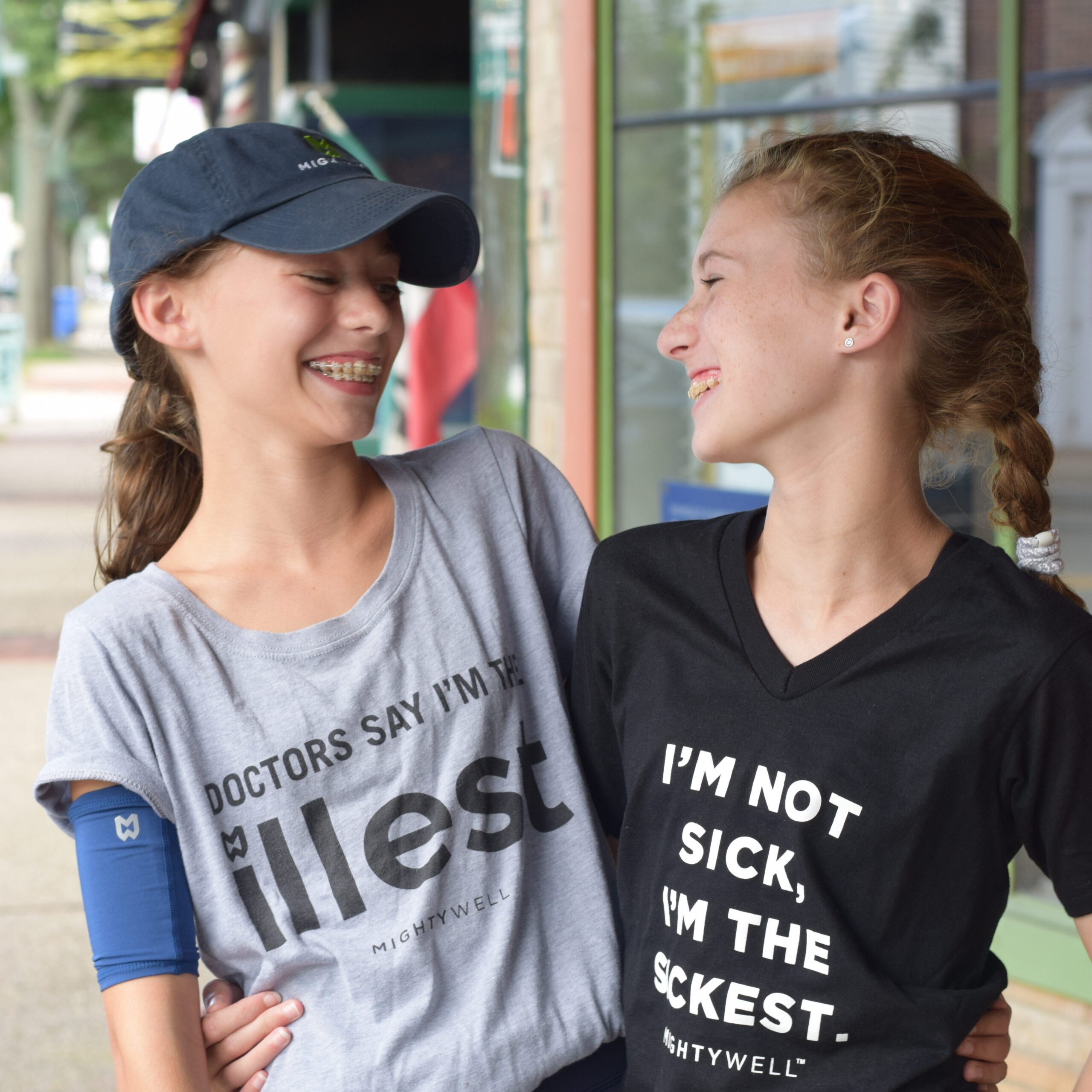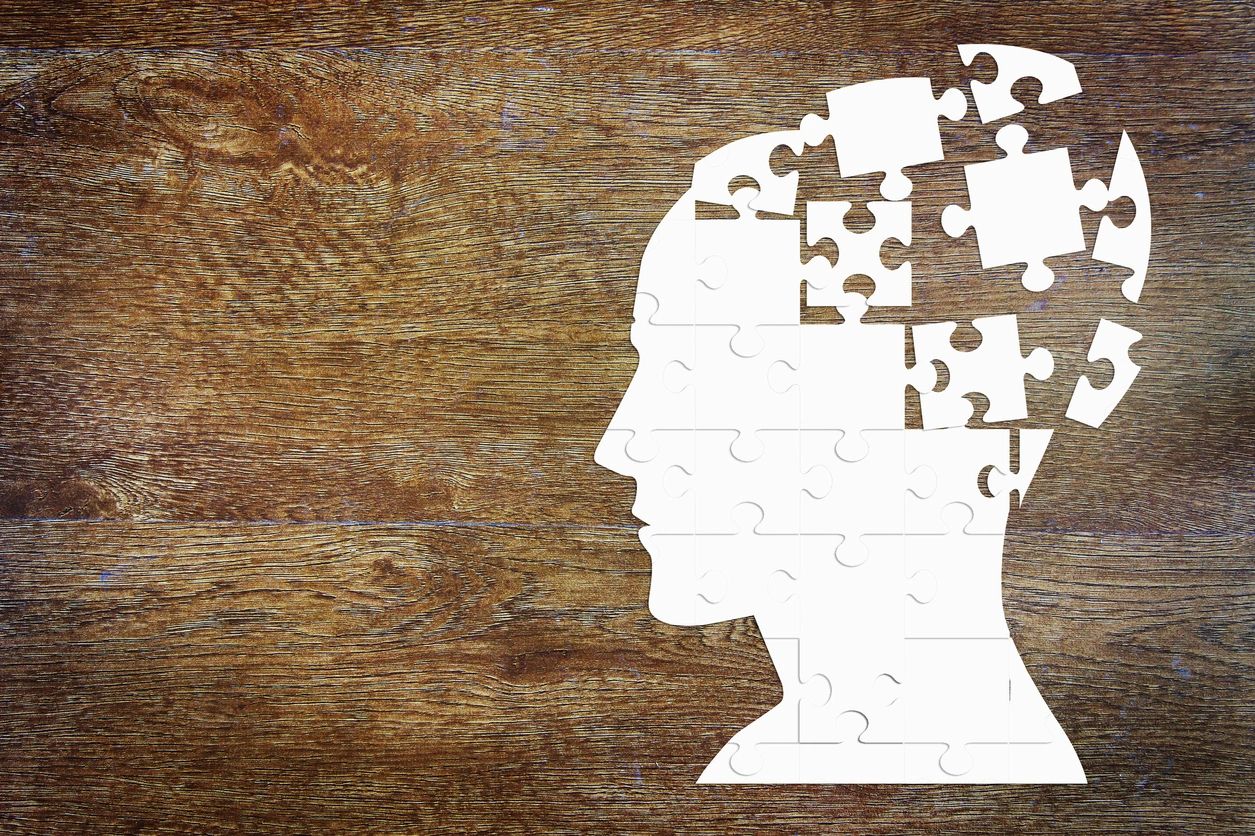While symptoms can vary from one illness to another, one symptom is almost universal to the chronic illness experience: brain fog. Also called cognitive dysfunction, brain fog can be caused by neurological issues or even just the fatigue and stress of being sick for long periods of time. It often feels like a thick fog slowing your thoughts and reactions, but it can come in many forms:
- Memory loss or slow recall
- Difficulty following conversations
- Difficulty understanding humor or complex ideas
- Slower processing time for thoughts and actions
- Difficulty finding the right words
- Difficulty making coherent sentences
- Difficulty reading or focusing
- Decision paralysis
- Losing your train of thought
- Losing track of items
- Losing track of time
- Getting lost or disoriented
These challenges can be quite significant because of how they impact day to day life. Trying to get out the door on time, you may have to sit and think about each step, rather than cruising on autopilot… and then spend ten minutes looking for your phone, only to find it was in your pocket the whole time, but your keys are missing. Connecting with others is difficult when following conversations and speaking your thoughts is a challenge. Being productive at work or school can be all but impossible. Freedom and independence can be hampered when driving safely or remembering where you were walking to don’t come naturally.
Even your sense of self can feel impacted. So many aspects of our personalities — memories, how we speak, sense of humor, the decisions we make — are impacted by cognitive dysfunction. On days when the fog is particularly thick, it’s hard to feel intelligent or charismatic. In truth, it’s hard to feel like yourself at all.
It’s unsurprising, then, that many of our Friends in the Fight feel that brain fog is their most challenging symptom. Some pains you can push through. Some disabilities you can advocate for or accommodate around. But when your mind isn’t working, all of this becomes harder.
The good news is that there are ways to cope with cognitive dysfunction! Here are our top three tips:

1. care for your brain
While some brain fog may be unavoidable, you can take steps to minimize it. First and foremost is sleep. This may be easier said than done with chronic illness, but getting enough restful sleep is crucial to your brain’s health. Maintaining a consistent sleep schedule, minimizing screen time at night, and other forms of sleep hygiene can improve both the quantity and quality of sleep you’re able to get.
Meditation or other forms of relaxation and mindfulness also have a tremendous impact on our brain. Practicing mindfulness regularly or just focusing on slowing down your breathing once or twice a day can improve focus, memory, and drastically reduce your body’s stress response. (Not sure how to get started with mindfulness or meditation? Check out one of these apps!)
And speaking of stress, anything you can do to reduce the amount of stress carried in your body and mind can make a massive difference. Reducing stressful parts of your life, finding an outlet like talking to a friend or therapist, and regular exercise can all help. Not sure a rigorous exercise program is in the cards right now? That’s ok! Any movement helps release the stress hormones from your body. Get up and stretch every hour, go for a walk with a friend, or dance to your favorite music!
Finally, those general health tips like drinking enough water and eating well apply to brain health too! You can learn more about which foods boost your brain here.

2. take a load off
If you can’t beat it, you can at least plan around it. Take a load off of your brain any chance you get by not expecting it to hold onto everything. Pick out your outfits and pack your lunch the day before so that if you’re sleepy and running late in the morning, it’s ok. Use organizers and key racks to keep track of your things. Let’s face it, putting something down and thinking “I’ll remember where I put this” is just setting yourself up for failure. Having a designated place in a convenient location lets your brain switch to autopilot. Still not sure you can trust yourself? Check out products like the Tile — a small tracking device that you can hide in your keys, wallet, car, remote… whatever. Lose something? Just hit the tile app on your phone and it will guide you to your lost item.
Most importantly, write things down! Don’t expect your memory to hold onto everything for you. Use your phone, schedule book, planner, whiteboard, or sticky notes to keep track of thoughts, appointments, and checklists. And don’t be afraid to set alarms or reminders on your phone.
On the market for a new system to keep track of life? Check out Mighty Well’s new Daily Brain Fog Fix, aka your brain’s new BFF! Designed by chronic illness patients, this planner is so much more than just a reminder system. It includes space to track daily symptoms, doctors’ notes, and moments of gratitude amidst the daily challenges.

3. Self-compassion and humor
You can reduce brain fog by caring for your brain and you can structure your life in a way that minimizes the impact of cognitive blips. But there will still be times when cognitive dysfunction affects your life. It’s ok to feel discouraged, frustrated, or sad. As much as you can, try to still find compassion for yourself and your mind. Remember that your brain is doing its very best, all things considered. Remember that it is not your fault and not something to be ashamed of. And in the moments when you don’t feel like yourself anymore, remember that you are still there underneath, even when the real you can’t quite make it to the surface. The people who know and love you will remember who you are and love you for it. Find ways to love yourself in those moments too.
And hey, sometimes the best way to fight despair is to laugh at ourselves! Keep a running list of the funniest things you’ve said from within the fog. Send your buddies a picture of the ridiculous places you’ve lost your phone. Finding humor can shift what feels like a debilitating barrier into a goofy quirk, especially if you let others in on the joke.
Remember, you are worthy of love, even while foggy ♡
Have a funny brain fog story to share? Or a strategy that works for you? We’d love to hear it! Join the conversation in our supportive Friends in the Fight facebook group.


2 Responses
My brain fog is so bad today, I can’t even read the article. I’ll get back to it soon. And my husbands been asking me a million questions even though he knows I’m in a full blown ME/CFS crash right now. UGH. Thanks for the suggestions.
You’re welcome, and I hope it was short-lived! I know even the best partners have trouble knowing how to support during brain fog if they haven’t experienced it themselves, and communicating our needs in those moments is SO challenging.